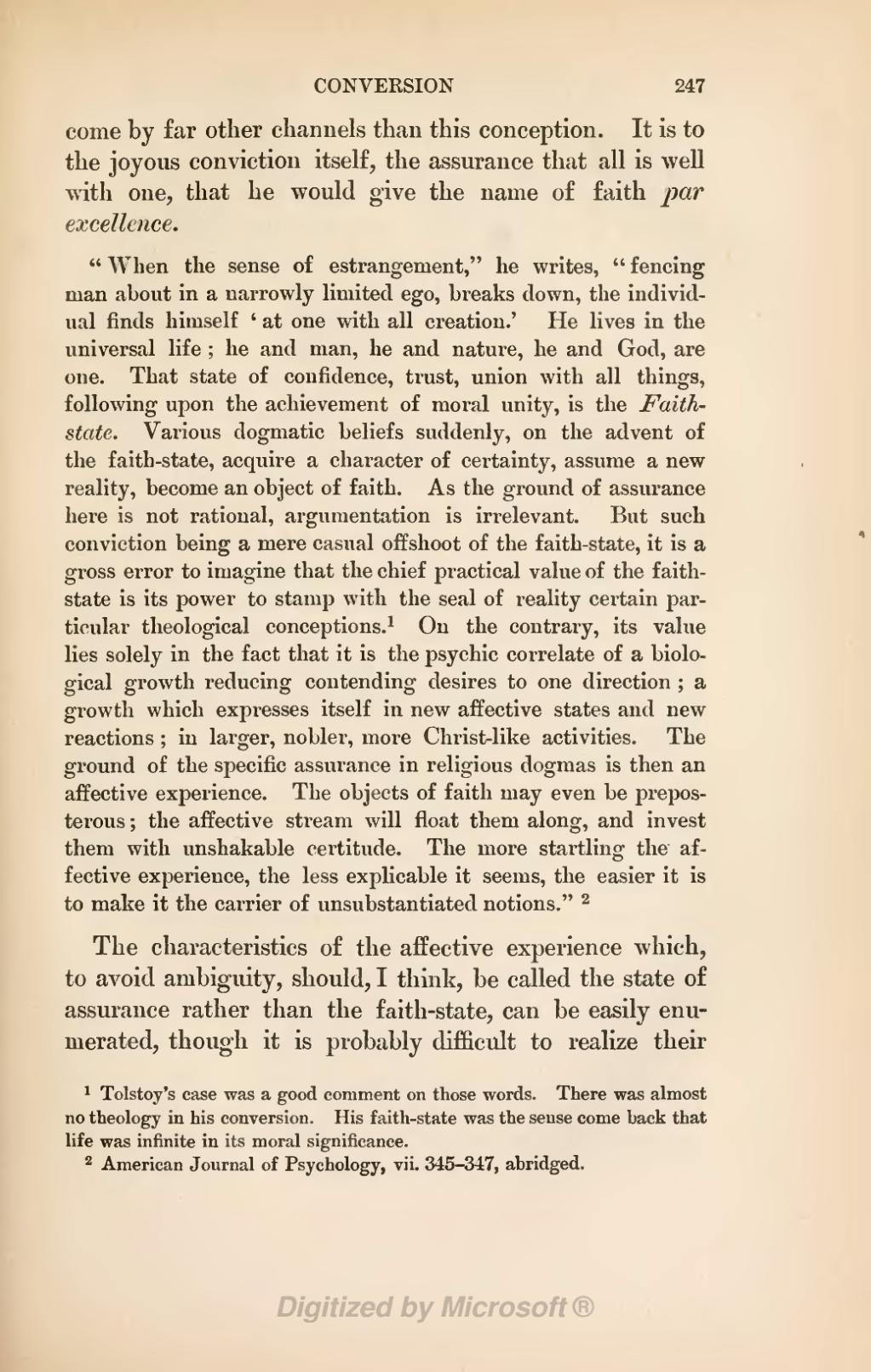come by far other channels than this conception. It is to the joyous conviction itself, the assurance that all is well with one, that he would give the name of faith par excellence.
"When the sense of estrangement," he writes, "fencing man about in a narrowly limited ego, breaks down, the individual finds himself 'at one with all creation.' He lives in the universal life; he and man, he and nature, he and God, are one. That state of confidence, trust, union with all things, following upon the achievement of moral unity, is the Faith-state. Various dogmatic beliefs suddenly, on the advent of the faith-state, acquire a character of certainty, assume a new reality, become an object of faith. As the ground of assurance here is not rational, argumentation is irrelevant. But such conviction being a mere casual offshoot of the faith-state, it is a gross error to imagine that the chief practical value of the faith-state is its power to stamp with the seal of reality certain particular theological conceptions.[1] On the contrary, its value lies solely in the fact that it is the psychic correlate of a biological growth reducing contending desires to one direction; a growth which expresses itself in new affective states and new reactions; in larger, nobler, more Christ-like activities. The ground of the specific assurance in religious dogmas is then an affective experience. The objects of faith may even be preposterous; the affective stream will float them along, and invest them with unshakable certitude. The more startling the affective experience, the less explicable it seems, the easier it is to make it the carrier of unsubstantiated notions."[2]
The characteristics of the affective experience which, to avoid ambiguity, should, I think, be called the state of assurance rather than the faith-state, can be easily enumerated, though it is probably difficult to realize their
